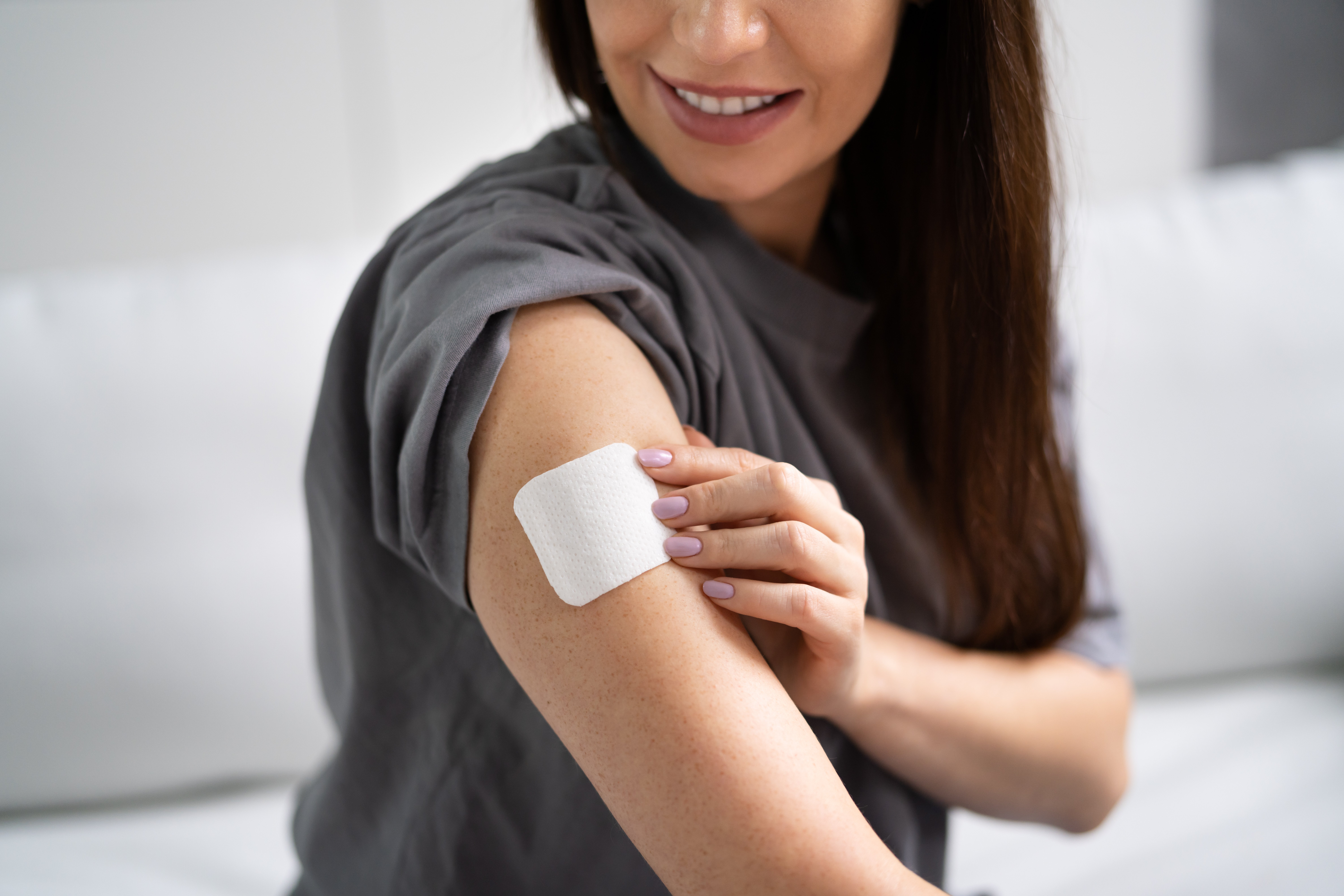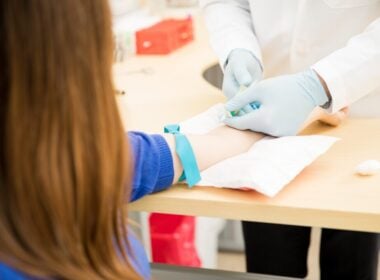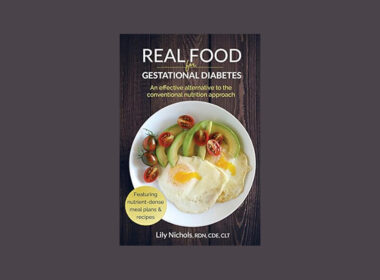If there’s ever an easy decade to be a woman, the teenage years are no it. Confronting the hormonal changes transforming their bodies and wreaking havoc on their moods can leave girls feeling frustrated, chaotic, or even insane. I myself dealt with irregular periods throughout high school and into college. I finally learned more in my early twenties about my cycle—that is, beyond the fact that I was supposed to have a period every month—and I couldn’t believe I had nunca heard any of it before.
Even though I still had periodos irregulares, I felt so much more confident because I could recognize the general patterns within my cycles and predict more accurately when my periods would arrive. I felt empowered to take care of myself, and I couldn’t help but wonder how much less stressful my teen years could have been had I been taught about hormonal health and learned to listen to the signals I was getting, instead of just feeling “crazy” for getting upset about something that even I knew wasn’t a big deal, or beating myself up for feeling low-energy.
But even if I had been better informed, what resources could I have turned to for help? The online world can be tricky to navigate for a teen girl looking to learn more about her body. Many “female health” apps are designed only to predict times of fertility or infertility—not for its own sake, but only to determine when it is “safe” or “not safe” to have sex. This narrow understanding of reproductive health fails to acknowledge the full picture about women’s bodies and furthers the idea that the female body is bad for functioning naturally.
Below is a list of fertility tracking aplicaciones that offer educational content about the entire menstrual cycle in a way that’s simple enough for a teen to understand and doesn’t focus exclusively on family planning. As always, be aware of the potential pitfalls of femtech app use in terms of data breaches, or having your personal health info sold to health marketers or researchers online.
Recommended fertility tracking apps for teen girls
FEMM
The FEMM app is a helpful and comprehensive tool for women of all ages and stages in their reproductive health journeys. The app itself is certainly easy enough for today’s digitally native teens to navigate to track bleeding and monitor symptoms.
Both bleeding and moco cervical are included under the Fluid tracking tab, which could encourage teens to start paying attention to more than just when they start and stop bleeding.
Physical symptoms (like acné, cramps, cravings, and joint/muscle pain) and emotional symptoms (like anxiety and mood swings) can also be tracked, allowing teens to start identifying patterns and signs from their bodies. All tracking features are optional, so the tabs for intercourse, LH testing, pregnancy testing, and basal body temperature (BBT) could be switched off for teens. The app is also packed with educational information and invitations to learn more through the FEMM network. All in all, though it’s not designed specifically for teens, FEMM provides the most comprehensive and FAM-friendly experience in an approachable way.
Luna
This app is a win for usability and simplicity, though lacking a few features that could make it a more comprehensive tool. It is clearly designed specifically for teens, with a simple interface and the option to choose whether you’ve had your first period or not the first time you open the app.
Two “Prep Days” appear on the calendar view before each period is predicted to begin; a blurb in the Settings explains that since periods can be irregular during the teen years, Prep Days are a good time to start carrying an extra pad or tampon. The Learn page includes interactive infographics of the female reproductive system, with straightforward yet age-appropriate explanations of the different physical components and stages of the cycle.
The main downside to Luna is that it doesn’t have the option to log symptoms, other than typing out notes for individual days. Overall, this would be a good first app for younger teens or girls just starting their periods, especially supplemented by educational resources.
Hormone Horoscope Teen App (Lite version is free, Pro version $1.99)
Despite the gimmicky name, the Hormone Horoscope Teen App provides solid information about hormone health, especially for older teens seeking ways to feel independent and in control. A product of the Hormonology brand, the app explains how estrogen, progesterone, and testosterone fluctuate throughout the entire cycle. Its depth of information and creative tips on how to make the best of every single day of your cycle sparked my own lasting interest in women’s health.
The Hormone Horoscope app does have several downsides. The overall design of the app is not superb; teens who are used to beautiful, intuitive online experiences may be turned off by its clunkiness. Additionally, you have to manually input any changes in cycle length to get the daily “horoscopes” to adjust accordingly, which might be frustrating for teen girls whose cycles are constantly changing. For those reasons, I would recommend this app mainly as an informational companion to a simpler daily tracker app like Luna. Plus, as interesting as the insights are, in the end it’s best to be able to follow the signs your own body is giving you rather than relying on an algorithm to “predict” your every move and mood.
Popular apps you should encourage your teen to avoid
Below are some popular options that I no recommend. I wanted to address por qué they are not included in my go-to list, since moms or girls may come across them and wonder if they are a good choice.
Natural Cycles
This app, heavily advertised as “hormone-free birth control,” is likely familiar to many Instagram users. While the departure from promoting other forms of artificial birth control is certainly refreshing, Natural Cycles does not aim for its users to gain a holistic understanding of their menstrual cycles and hormonal health. Rather, it focuses on alerting users to when they are fertile (with completely separate programs for women who are trying to avoid pregnancy and for those who are trying to become pregnant).
MagicGirl
This app seems to market itself to very young teens. It has a very playful, game-like feel with animated figures. It does not focus on sex or pregnancy; however, the open chat feature may lead to inappropriate or explicit content being shared by other users.
MyFlo ($1.99)
I wish I could recommend this app (based on the book In the Flo by Alisa Vitti), because it promises so much in terms of tracking and education, but at this point the app seems to be in sore need of development work–recent reviews complain about the app crashing, losing their data, or simply not working. It’s a paid app, and I wouldn’t spend even two dollars for something that doesn’t work; however, if it were to get revamped in the future, it does seem like it would be a very comprehensive option that focuses on more aspects of menstruation than ovulation.
Lecturas complementarias:
NW Podcast Ep. 3: What is FEMM? An Interview with Anna Halpine, founder of FEMM
Reseña del libro Natural Womanhood: La guía de la chica feliz para ser completa












What are your thoughts on the fertility friend app?